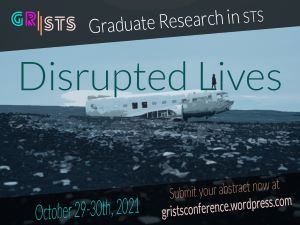Program on Science, Technology and Society at HarvardHarvard Kennedy School of Government | Harvard University |
|||||||
|
|
 GRiSTS 2021: Disrupted Lives: Linking, De-linking and the Infrastructures of RecoveryOctober 29-30, 2021, AbstractThe extraordinary disruptions of the past year underscore the sweeping connections between science and technology (S&T) and the movements of global social life. Known through science, the virus infiltrated and modified the infrastructures that sustain our health, our economies, our modes of governance, and our visions of post-pandemic futures. Public health science suddenly arrested the flows of global economic activity. National governments selectively legitimated forms of expertise that just as selectively shut down arenas of public interaction and social congregation. Open demonstrations against injustice, borrowing the technologies of mass protest, erupted after months of expert-ordered confinement. In each case S&T played as much of a leading role in creating and framing problems as in solving them. Yet the discourses of recovery are studded with calls for scientific and technological innovation to recover the promise of sustainable life on a shared earth. In a present full of unprecedented uncertainties for biological and social life, we are inviting work that reflects on the role of S&T in restoring healthier bodies, more sustainable economies, and more inclusive politics. This conference calls for (up to 350 word) abstracts from graduate students in STS and neighboring fields representing work on a range of contemporary and historical domains: AI, biotechnology, climate science, digitalization, economics, IT, public health, medicine, security, urban planning and more. Papers should connect to the theme of Disrupted Lives, exploring the role of S&T as instruments of governance and their implications for shaping the politics and policies of recovery. We welcome submissions that problematize the role of S&T in linking or de-linking pre-pandemic modes of life: remaking ties between space and work, school or commerce; enabling new forms of social awareness or amplifying injustice through mass surveillance and intrusive public health regimes; and using advances in data science and modeling to reveal inequality or justify draconian measures targeting behaviors seen as unsafe or risk enhancing. We hope to critically examine how knowledge and innovation constitute themselves as infrastructures of recovery as much as they may also serve as forces of future disruption. Please submit abstracts by June 1. Full event details are here. |
||||||